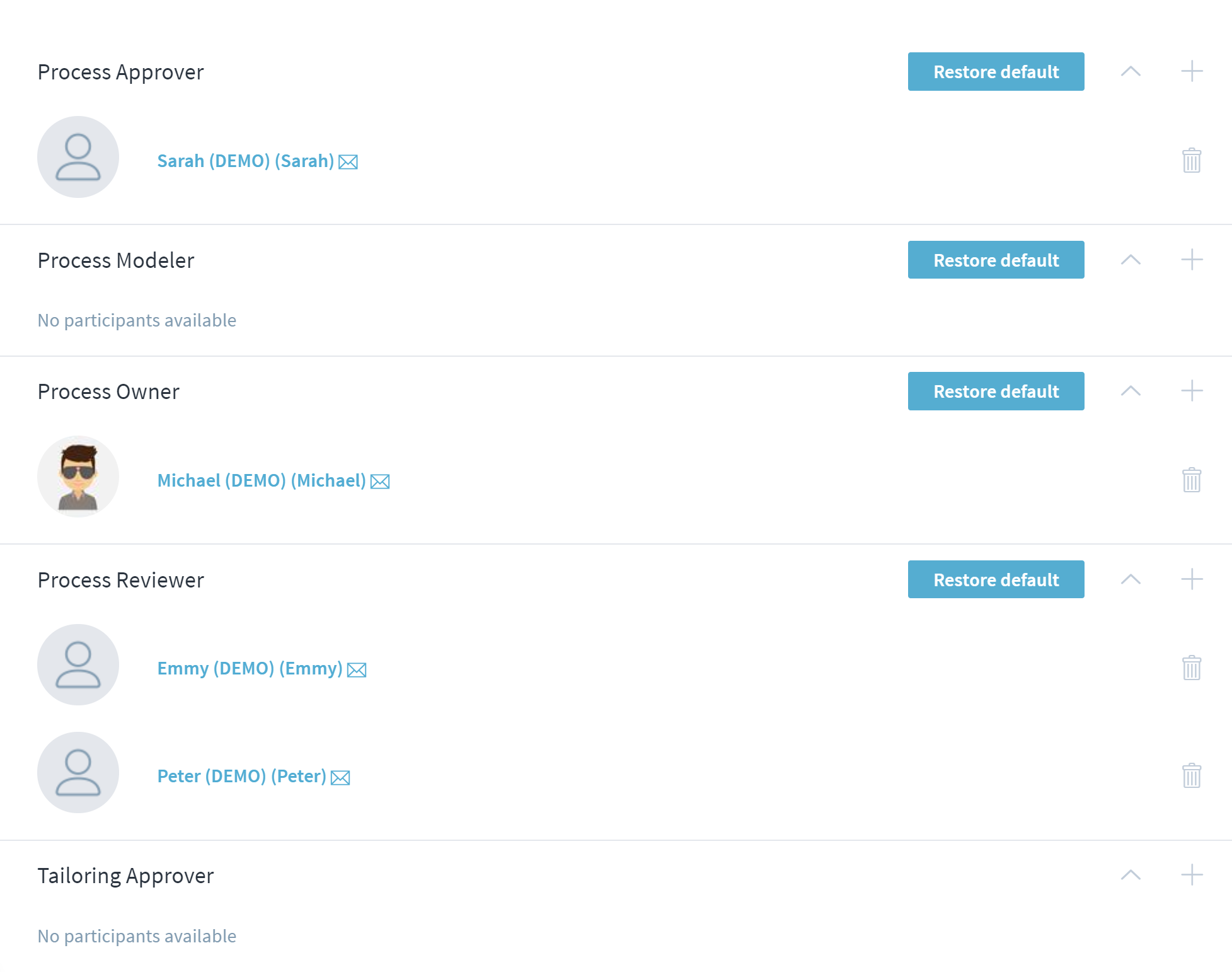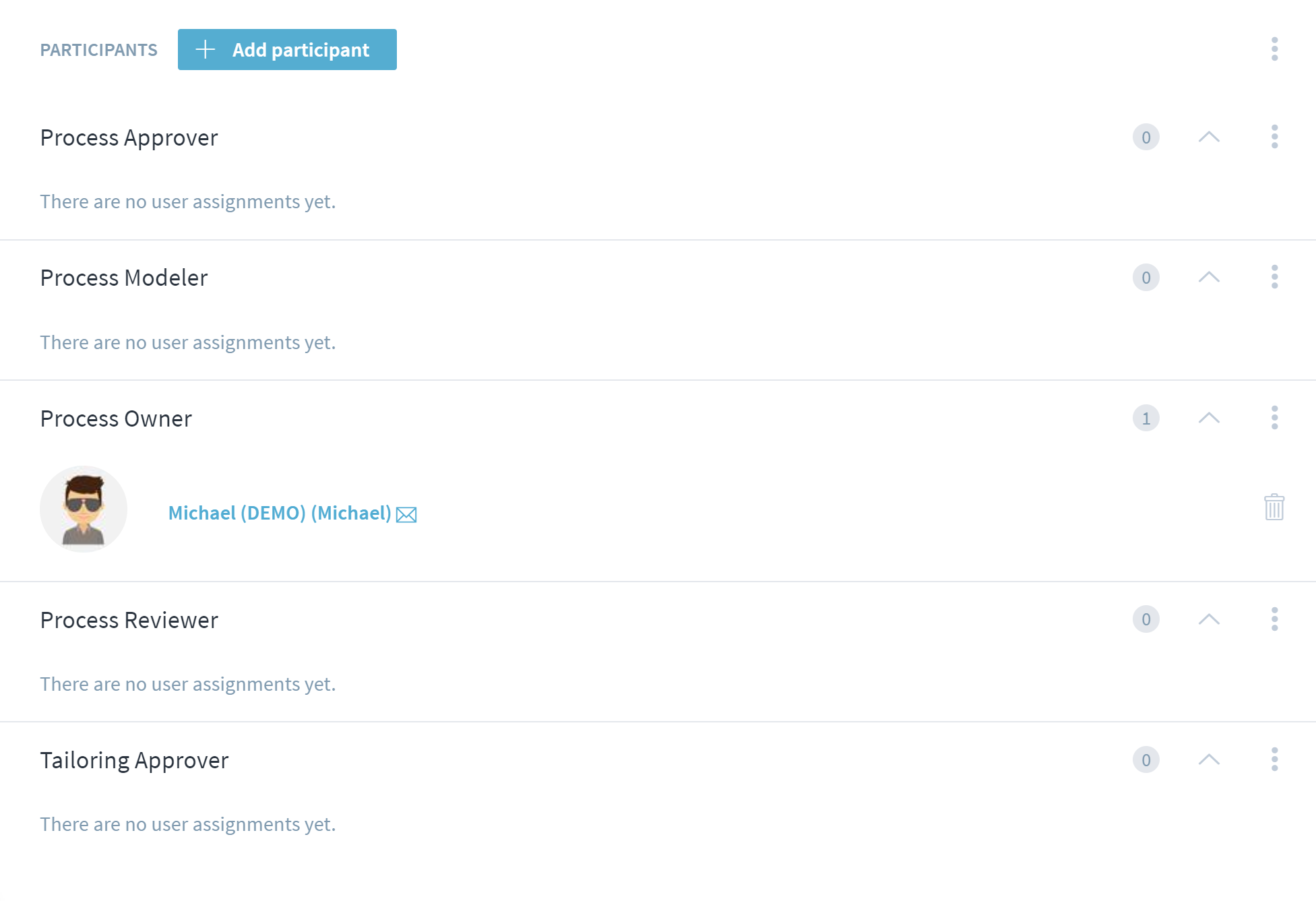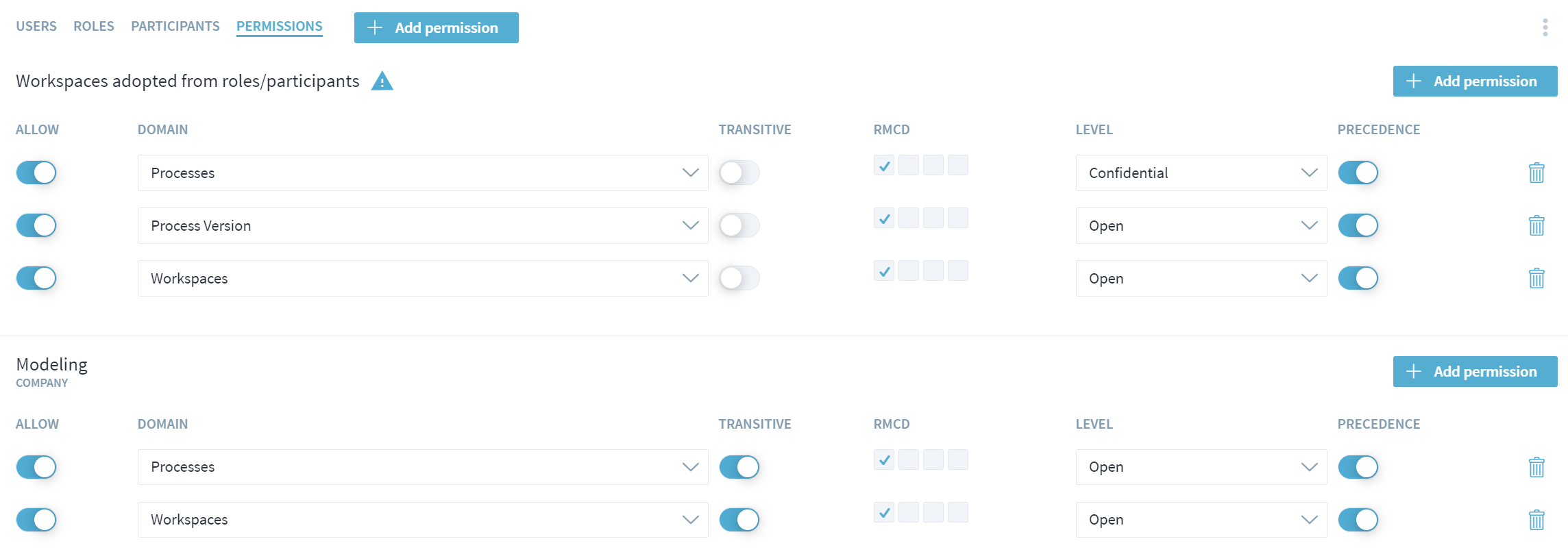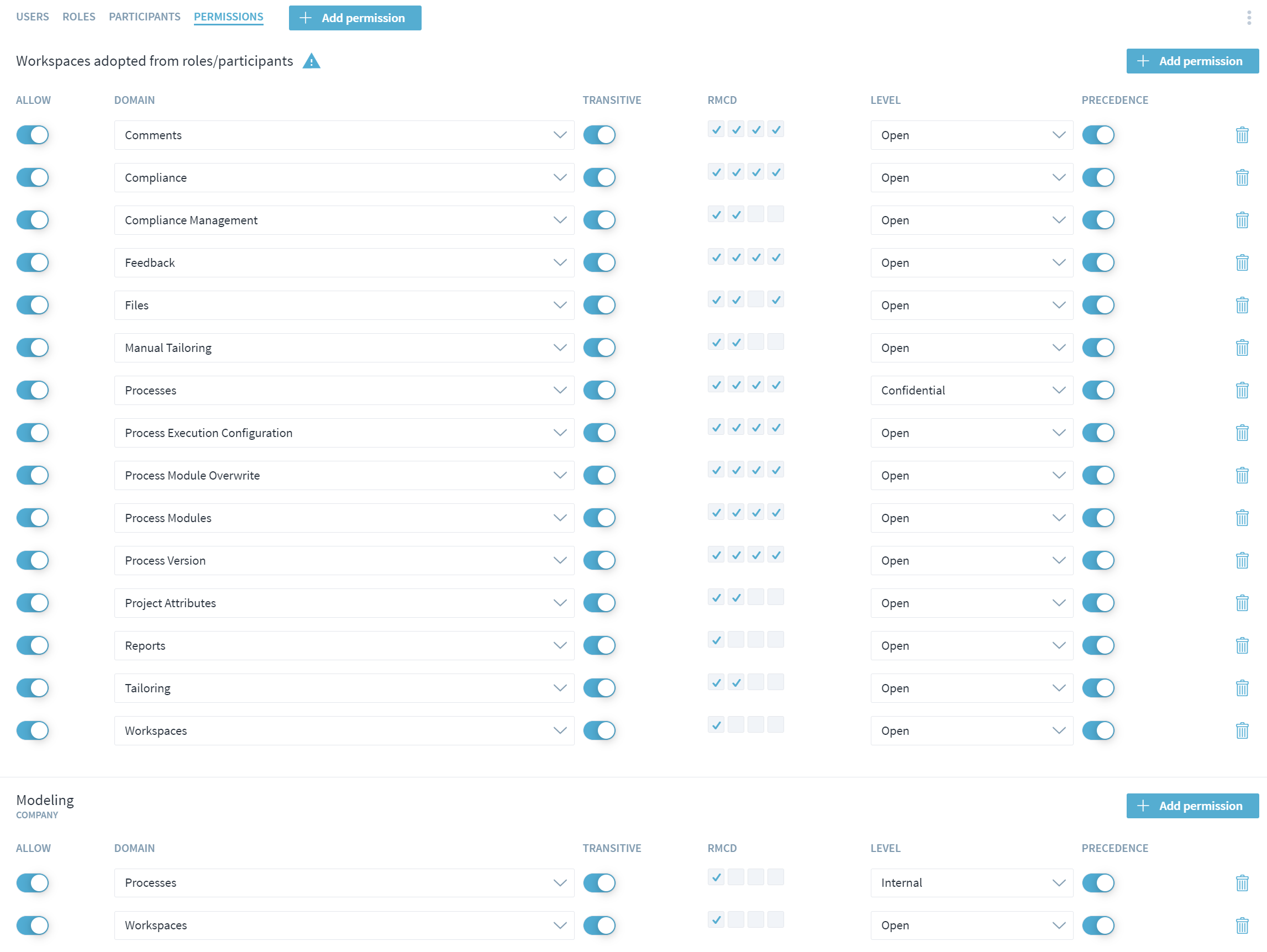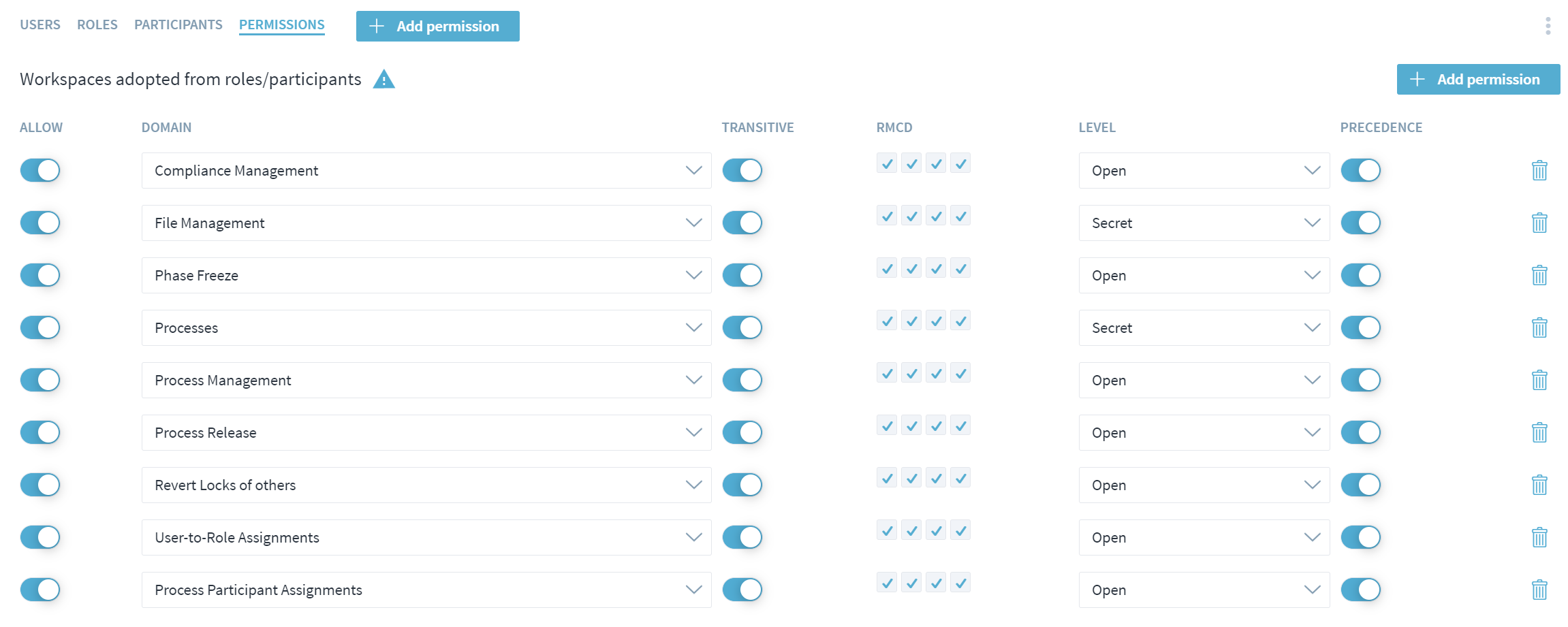Table of Contents
Manage Process Management Participants
Similar to other process areas, it is recommended to structure process management organizations in a role-based manner, e.g. process owners, modelers, reviewers, or approvers. To avoid a terminology conflict with the normal process roles, the process management roles in Stages are called process participants. Participants can be part of process release automations.
Participants are defined globally for the whole system and assigned to persons on a per-workspace basis.
Assign Participants
Participants are assigned per workspace via Management > Process Versions > … > Participants.
If a specific participants is not needed at a workspace, it is left unassigned. For example, a project workspace typically needs a process owner and potentially a tailoring approver, but not necessarily a process reviewer.
Define Participants
All potential process participants are globally defined via Administration > Process Release > Participants.
If a user is assigned on this global level, it is automatically assigned to this participant for every workspace. This might be useful for smaller organizations where all process approvals are performed by the same person or for compliance officers that are required to approve specific changes within the whole organization.
Permissions for Participants
If a user is assigned as a participant for a specific workspace, the user needs access to this workspace to perform her or his duties. To simplify the administration of those permissions, participants can be directly assigned to permission groups. This way, a process reviewer can get the permissions to access the process content to be reviewed simply by being assigned as a reviewer in a specific workspace.
For example, the permissions for a reviewer or approver could be set up this way:
A process modeler could have this permission group:
To receive specific privileges, a process owner could additionally have this permission group:
Please see here for more details on permissions.
